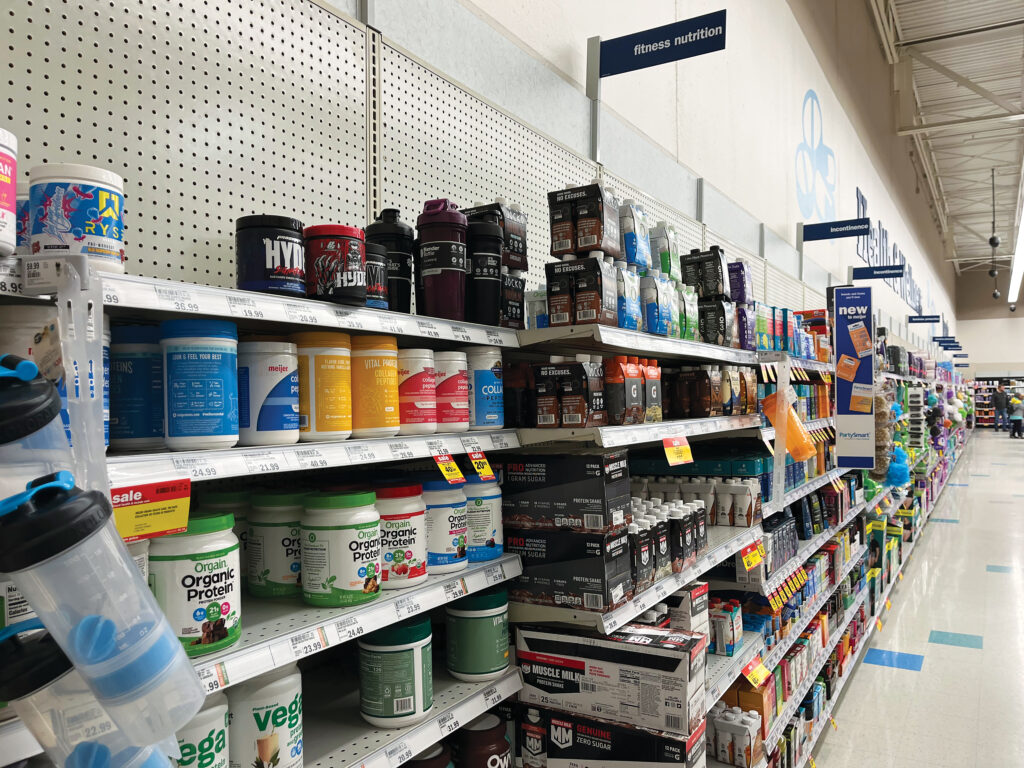One day in high school, I was picking up rice cakes and trail mix from Walmart. A silver-haired stranger on a ventilator looked at me with terror on his face.
“That’s not going to put any meat on your bones,” he said.
Regretfully, I gave an anxious laugh and walked away.
This small moment is a reflection of several toxic layers in our culture. First, some men feel entitled to speak authoritatively about how women look. Even if they don’t know each other. Even if they have a 60 year age gap. Second, people assume they know what is healthy for others.

For most of my youth, eating in general was something embarrassing for me. I was picky. So many foods and the action of eating in front of others disgusted me. Whether I ate a full plate of different foods or barely anything at all, people seemed to have something to say about it.
A lot of people assumed I was healthy because of my appearance. I now understand that size is a mere reflection of genetics and calories in and calories out, regardless of what those calories are made of.
I am now a new member of health and fitness spaces. I love going to the gym on campus. My Instagram feed is full of dozens of fit content creators. My diet has certainly improved because of this. I eat more fruits and vegetables. I pay attention to things like added sugars and protein intake. I know, based on my activity in the next few hours, what kind of food will give me the energy I need to complete tasks.
Unfortunately, this type of health has introduced me to a whole new world of harm. Once someone sets new standards, they have ammunition for themselves whenever they fall short.
I recently got used to working out 6-7 days a week. Not only did this neglect my body’s need to heal, but it also made me feel terrible when I could only exercise 4-5 days a week.
I had created a framework for myself that I felt I needed to meet perfectly. It restricted me from equally healthy things that a body needs, like rest.
So much of health is defined by restriction. Low calorie. Low-fat. Low sodium. Low carb. No sugar added. Unfortunately, restriction leads to binging.The National Institutes of Health states that deprivation can “activate the brain’s stress system, causing anxiety and withdrawal-like symptoms, and leading you to overeat the forbidden foods when you get a chance.”
Many people on a dedicated health journey feel that foods and activities are divided into clear good and bad categories. This mentality is worse for you than so called “junk food.”
When we feel cravings, our body is telling us something. If we eat sugar-free Jell-O every time our bodies want a Heath bar, we may never feel satisfied. Then we eat the Jell-O, then some peanut butter, then a protein bar, then an apple and then two Heath bars.
Molly Kimball, RD, is a nutritionist at Ochsner Clinic in New Orleans. She has spoken about the relationship between eating and guilt.
“Once you say it’s OK to eat something, there is no guilt,” Kimball stresses. “You don’t inhale three without tasting them and then taste the fourth. You enjoy every one.”
What the fitness community and obsessive dieters seem to forget sometimes is that food does not only serve one purpose. Whether or not a type of food is good for someone depends on what their goals are.
This fall, my appetite tripled. People around me were shocked to see me finish a plate of food. I’ve certainly never eaten more calories in a week. This is what my body needs to make up for the amount of time I spend on a treadmill and lifting weights.
I used to feel the need to “earn” my food. I could eat a donut if I worked it off in the gym. Now I feel the opposite. My food intake unlocks the amount of physical activity I can do. It may be absurd for someone who is not physically active to drink energy drinks and eat calorie dense protein bars. For others, they are entirely necessary.
As I walk down aisles of green supplements, pre-workout powders, sugar-free snacks and protein shakes, I think a lot of it is overpriced snake oil.
I’m grateful for what the gym and mindful eating have done for me this year. I am undoubtedly physically stronger. Still, I realized that I don’t always like myself more than I did before I tracked any of this.
All this is to say that health varies for every person in every phase of their life. At this point, I think the healthiest thing I can do is give my body what it tells me it needs, and remember the value in moderation.
